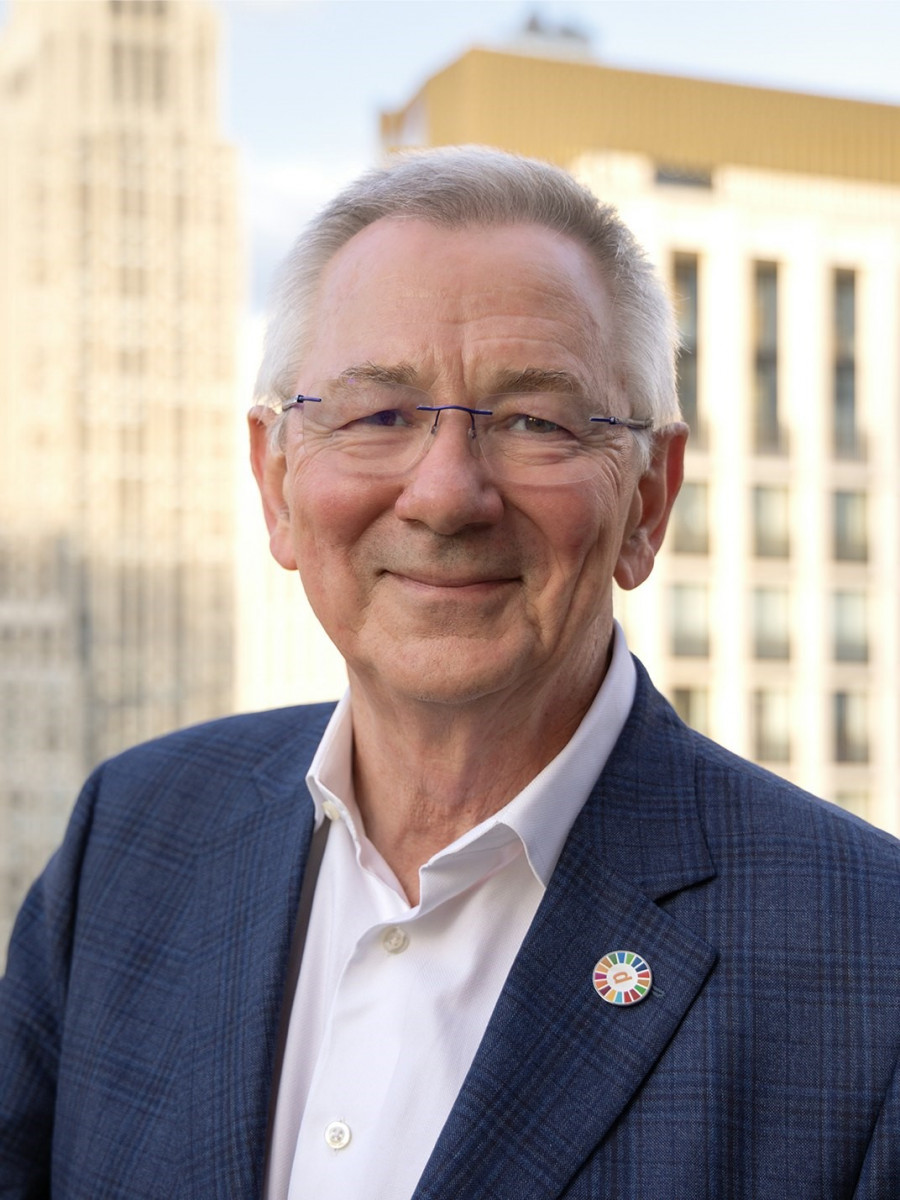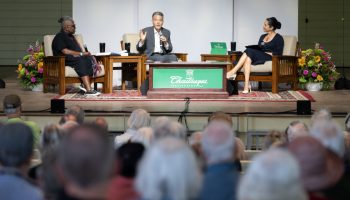
Sir Andrew Steer, president and CEO of the Bezos Earth Fund, believes Chautauquans — and the world — should bet on AI.
Steer will be delivering a lecture at 10:45 a.m. today in the Amphitheater, the fourth installment in this week’s Chautauqua Lecture Series theme, “The AI Revolution.” His lecture will draw upon his decades of experience tackling issues like development and poverty on the global stage to discuss the power of artificial intelligence in the battle against climate change.
“The applications of AI, we do not fully know yet — we’re only beginning to understand them, but (AI) has certain characteristics which clearly distinguish it from anything that’s come before,” he said. “Most importantly, it can sort through incredible amounts of data like nothing that’s ever happened before.”
Last month, the Bezos Earth Fund, led by Steer, announced the creation of the AI for Climate and Nature Grand Challenge, a $100 million grant program intended to “identify how AI can help solve problems in nature and problems on climate change,” Steer said. The first round of the challenge is focused on three distinct areas: the development of sustainable proteins; optimizing power grids; and conserving biodiversity.
It’s important to note, Steer said, that the AI being created and used for the challenge goes beyond the generative AI chatbots, such as ChatGPT, that have gained mainstream attention in recent years..
“These chatbots are extremely useful … but that’s the verbal,” Steer said. “Think of spatial and (Geographic Information System)-linked, and imagine you’ve got 100 years of maps, all with different scales and different names; and then on top of that you’ve got another 500 layers of soils, weather patterns, river flows, poverty data, (and) household data — massive amounts of data. … Humans cannot, with the current technology, squeeze all the wisdom that exists there.”
And while humans don’t have the capacity to process those immense amounts of data, new and emerging AI technology could. Steer said that the new AI models being created for the challenge have the potential to synthesize massive amounts of data in seconds, allowing researchers to keep tabs on, for example, every single tree in the world, tracking their growth and even notifying them when one falls.
While there is still much to be learned about AI and what exactly it might be capable of, Steer’s lecture will focus in large part on encouraging the world to buy in. Fiona McRaith, Steer’s senior manager and adviser at the Bezos World Fund, said that the enduring spirit of human progress is what makes AI’s potential so exciting.
“We have achieved so much since the Industrial Revolution — we’ve invented so much,” McRaith said. “Poverty has fallen, lifespans have extended … and it is due to human ingenuity and innovation that we have always found solutions to the toughest problems.”
And since today is the Fourth of July, the story of the American experiment is the perfect parallel for the AI Revolution. Steer and McRaith both emphasized the American belief in what is possible, and the power of taking a chance on something with no guarantee of success — although they are quite confident that AI will change the world for the better.
“(Democracy) was a big bet that the country made,” McRaith said. “And we are still making big bets as a community and as a world, and we’re making a big bet every single day that we can solve great crises that are descending upon us.”




